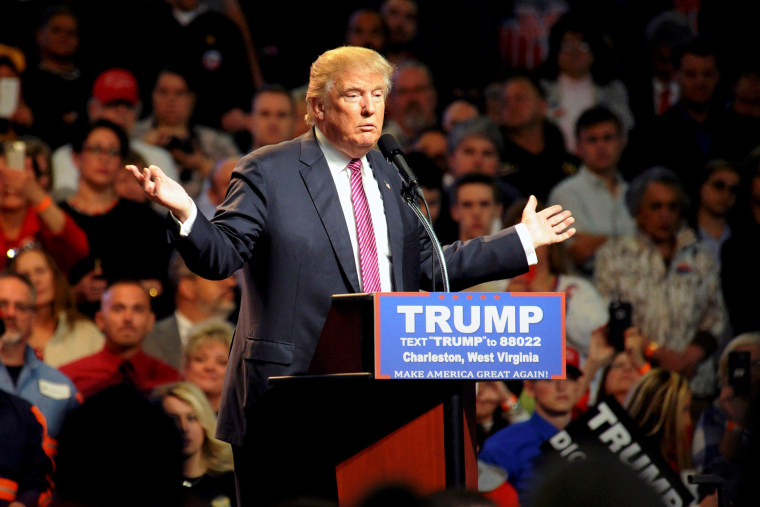Republican presidential hopeful Donald Trump suggested to the Associated Press this week that he may be the first major-party nominee in the post-Watergate era not to release his tax returns. That's touched off a fairly serious controversy, for which the candidate has no credible defense.
The presumptive Republican nominee spoke to Fox News' Greta Van Susteren last night about his position, arguing that he'd "like to" disclose the tax documents, "hopefully before the election," but he's waiting for the end of an IRS audit. The problem with this excuse is that it doesn't make sense: an IRS audit doesn't preclude someone from sharing their returns.
Indeed, as Rachel noted on the show last night, even Richard Nixon, during his presidency, released his tax materials in the midst of an IRS audit. Trump could, if he wanted to, release these returns whenever he feels like it. For reasons he won't explain, the GOP candidate just doesn't want to.
But my favorite twist in this story was this quote from a prominent Trump ally. Politico reported:
Anthony Scaramucci, a New York financier who recently backed Trump, told Fox News that the real estate mogul's reluctance is due to "the complication of the return, the fact that he's under an audit, he feels that he doesn't want to give out that information to the general public and have a whole nightmare situation with opposition research trying to pick holes through the return."
Note, Scaramucci, a prominent Republican fundraiser, just this week signed on as an official member of Trump's national finance committee. He's not, in other words, just some outside observer; Scaramucci is a new member of Team Trump.
And his defense for keeping tax returns hidden from the public is cringe-worthy. The complexity of the documents is irrelevant, as is the IRS audit. As for the notion that opposition researchers might uncover embarrassing information in Trump's tax materials, that, almost by definition, is the worst of all possible defenses.
In effect, it's like saying, "I have to keep the documents hidden because the truth might make me look bad."
If the Republican candidate is waiting for this story to simply fade away, that might take a while. Both Hillary Clinton and Mitt Romney, for example, have begun slamming Trump over his refusal to disclose his returns. Making matters worse, journalists have begun shining a light on the fact that Trump not only committed to releasing the materials he now wants to keep hidden, he also blasted Romney in 2012 for delaying the release of his returns.
In other words, we're dealing with one of those nicely packaged controversies in which a presidential candidate is guilty of secrecy, dishonesty, and hypocrisy -- all at the same time.
What's more, the longer Trump struggles to explain himself, the louder the questions become about what he might be trying to hide. The most prominent guess -- that Trump has been lying for months about his net worth -- is based solely on speculation, but the scuttlebutt will continue unless and until the candidate does what every other nominee has done since 1976.
